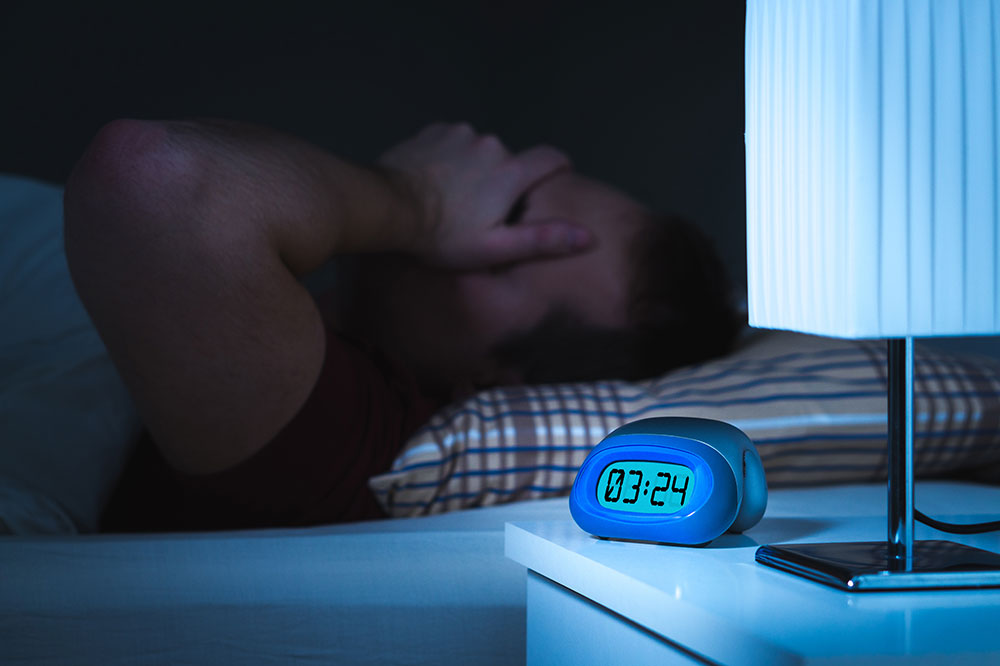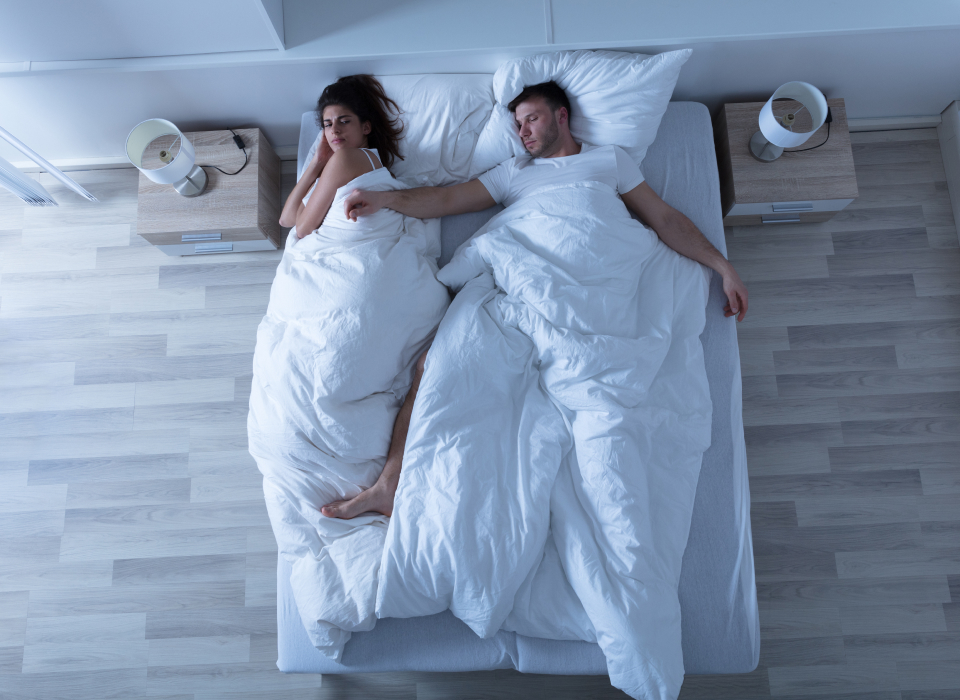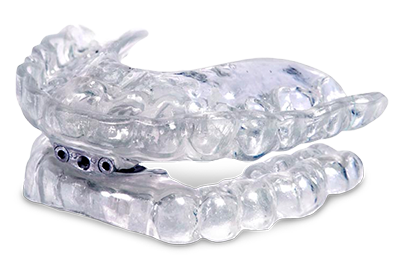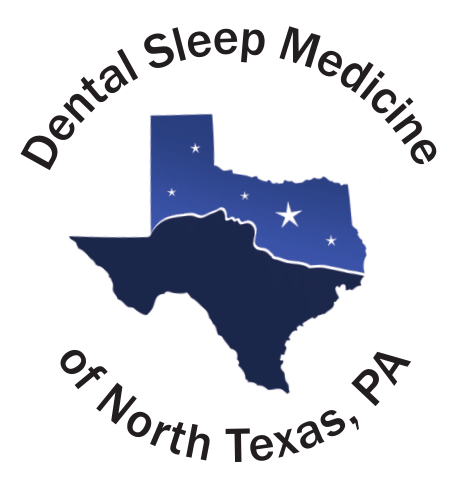Understand Your Symptoms
Have you been feeling tired lately? Can’t focus during the day? Does your partner complain of being woken up by constant snoring? If so, you may suffer from a sleep disorder called sleep apnea. If you have been diagnosed with sleep apnea, don’t let it go untreated as it can potentially worsen your health. Sleep apnea can be serious, and you should seek treatment if you snore loudly, wake up at night short of breath, or wake up with a headache or dry mouth.
At Dental Sleep Medicine, Dr. Clinton can help you receive a diagnosis and find the treatment that works best for you. Read on to learn more about sleep apnea and the treatments our qualified sleep dentist offer.

What Is Sleep Apnea?

Sleep apnea is an underdiagnosed, yet serious, sleep disorder that can affect your everyday life. This potentially life-threatening disorder occurs when the body stops and restarts breathing repeatedly during rest. This can be due to an obstruction in the throat, a neurological issue, or a combination of both. It can stop you from getting quality sleep and keep you feeling tired, sapping your energy, and motivation, and affecting your livelihood.
While there are a couple of types of sleep apnea, the most common type is obstructive sleep apnea (OSA). This type of sleep apnea is caused by an obstruction in your airway while you’re asleep due to the tissues of your throat and mouth over-relaxing. Anyone can develop OSA, but you’re more at risk if you’re overweight, smoke, or have a thicker neck, and the risk increases as you grow older.
Sleep Apnea & Snoring
About 90 million Americans, snore in their sleep, and about half of all people who snore suffer from obstructive sleep apnea. The two are often confused, which is why many people affected by sleep apnea never seek treatment. It’s important to have a proper sleep study done so that your condition can be accurately diagnosed and treated.
Note that both sleep apnea and snoring can be relieved with treatment. Depending on the diagnosis, our expert sleep dentist can help you find the sleep treatment that’s right for you.
The first step to improving the sleep quality for both you and your partner is a sleep study. Even if you don’t suffer from sleep apnea, snoring can cause your partner to suffer from sleep deprivation which can be detrimental to their long-term health and your overall relationship. We would gladly refer you to a sleep specialist we know and trust.

How Sleep Apnea Affects Your Overall Health

Sleep apnea and your overall health go hand-in-hand. In fact, they can reinforce each other. People who are overweight are more likely to suffer from sleep apnea, and people with sleep apnea are more likely to suffer from high blood pressure, heart disease, and weight gain.
Up to 80% of patients with type 2 diabetes also experience sleep apnea, while the sleep disorder can also raise the likelihood of adult asthma and acid reflux. Untreated sleep apnea can also impact your cognitive function and emotional regulation, putting you at higher risk for developing mood disorders or exacerbating existing ones.
It’s important to seek treatment for sleep apnea if you experience its symptoms precisely because of these connections. Sleep apnea, if left untreated, can kill. And with solutions as convenient as an oral appliance, you can finally get the sleep you deserve.
Diagnosing Sleep Apnea
Sleep apnea is diagnosed through a sleep study, also known as polysomnography, conducted by a physician. Sleep studies take place at either a sleep clinic where your sleep is monitored by a team or through a take-home sleep test. The test measures your airflow, heart rate, and bodily activity to help a doctor determine if you have a sleep disorder and what kind of disorder you have. A sleep study can show how severe your sleep apnea is and how many times you wake up throughout the night.
Only a physician can diagnose your sleep apnea. If you’re unsure where to go for a sleep test, Dr. Clinton can refer you to a trusted doctor for a diagnosis. Once you have a diagnosis, Dr. Clinton can help you find the sleep apnea treatment that works for you.

Treating Sleep Apnea: CPAP & Its Alternative

CPAP is the traditional treatment for sleep apnea. It delivers pressurized air through a mask, helping to keep your airway open so that you can get a good night’s rest. However, many patients dislike their CPAP because it’s bulky, loud, and uncomfortable to wear. For mild-to-moderate cases of sleep apnea, a snore or mouth guard offers a more convenient, more comfortable solution that is just as effective.
Frequently Asked Questions
Why does sleep apnea occur?
Sleep apnea occurs when you can’t breathe while you’re asleep — most often, this results from some airway obstruction.
While you may be able to breathe during the day, your throat and mouth muscles relax when you sleep. If you can’t breathe while you’re asleep, your brain triggers your body to wake up and resume airflow momentarily. Though you may wake up many times throughout the night, it’s possible that you won’t remember any of those instances.
Are sleep apnea and snoring the same thing?
While snoring is one of the most noticeable symptoms of sleep apnea, snoring isn’t always a sign of sleep apnea. It’s possible that your snoring isn’t indicative of health issues but if you snore loudly and consistently, we recommend undergoing a sleep study to make sure you’re healthy.
Snoring can also affect your personal relationships, especially if you sleep in bed with your sleep partner. Your snoring may deprive your partner of getting quality sleep, leading to resentment and health issues from sleep deprivation. Oral appliances for sleep apnea are also effective for snoring. Dr. Clinton can help you stop snoring so you and your partner can sleep peacefully.
When is sleep apnea dangerous?
Sleep apnea is dangerous because it deprives your body of sleep and your brain of oxygen every night you go without treatment. While you may believe a mild case of sleep apnea doesn’t require treatment you could be endangering your life and worsening your health. Some of the health conditions related to sleep apnea include:
- Heart disease
- High blood pressure
- Type 2 diabetes
- Anxiety
- Cognitive dysfunction
- Depression
For this reason, it’s crucial to seek a diagnosis and treatment for sleep apnea as soon as your suspect you might have it. Therapy can make a difference in your life and enable you to live your life with the energy to spend time with your loved ones.
Can sleep apnea be cured?
Most treatments for sleep apnea are not cures, but CPAP and oral appliances can effectively improve sleep apnea symptoms. There are few permanent treatment options for sleep apnea, such as surgery, but these are often used as a last resort because there may be side effects.
Though you’ll have to sleep with a mouthpiece every night, these treatments can change your life. They’ll help you to sleep better and reduce your risk of serious health conditions. Oral appliances are also convenient and comfortable, so they’re easy to sleep with.
Get Your Quality of Sleep Back
If you believe to be suffering from sleep apnea, don’t wait to receive a diagnosis and treatment. Call our Waxahachie office at (972) 737-5337 to schedule your consultation with Dr. Clinton. You can request your consultation by using the online form below to reach out to us by email. We proudly provide service to patients in the South Dallas area including Red Oak, Midlothian, Maypearl, and Ennis, TX.
